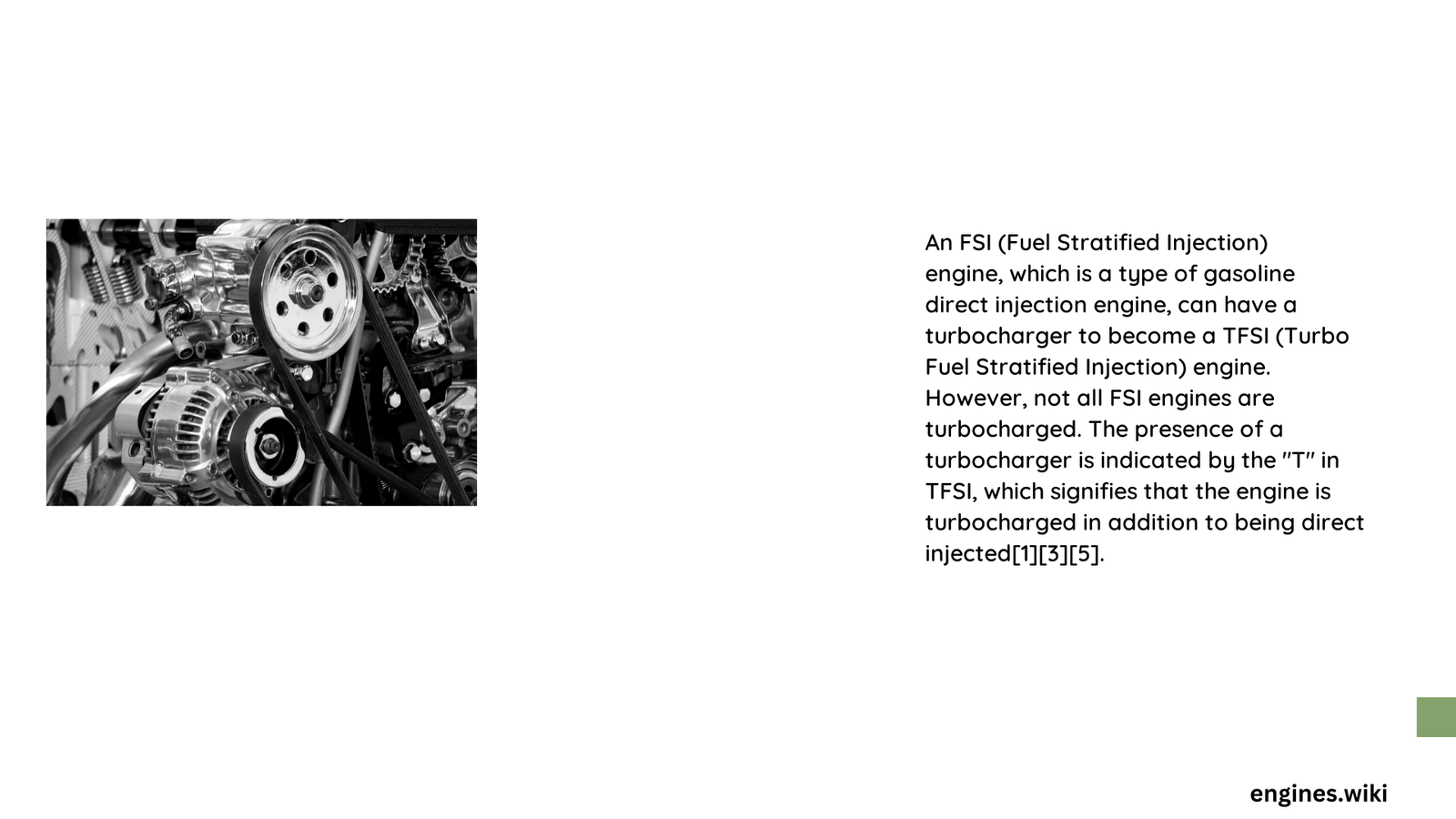The FSI (Fuel Stratified Injection) engine landscape reveals a fascinating intersection of advanced fuel delivery and turbocharging technology. Modern automotive engineering has strategically integrated turbochargers into select FSI engine models, transforming performance characteristics and delivering enhanced power output across various Volkswagen and Audi platforms. This comprehensive exploration will unravel the intricate details of turbocharged FSI engines, providing automotive enthusiasts and technical professionals with precise insights into their design, functionality, and performance capabilities.
What Exactly is an FSI Engine with Turbocharger?
An FSI engine with a turbocharger represents a sophisticated powertrain configuration that combines direct fuel injection technology with forced induction. The turbocharger compresses incoming air, allowing more oxygen molecules to enter the combustion chamber, which enables more fuel to be burned and generates significantly increased power compared to naturally aspirated engines.
Which Specific Models Feature Turbocharged FSI Engines?

Several notable Volkswagen and Audi models incorporate turbocharged FSI engines:
| Model | Years | Engine Code | Turbocharger Type |
|---|---|---|---|
| Audi A3 | 2006-2008 | BPY | K03 |
| Audi TT | 2008-2010 | BPY | K03 |
| VW Golf GTI | 2006-2008 | BPY | K03 |
| VW Jetta GLI | 2006-2008 | BPY | K03 |
| VW Passat | 2006-2008 | BPY | K03 |
| VW EOS | 2006-2008 | BPY | K03 |
How Does Turbocharging Impact FSI Engine Performance?
Performance Metrics Comparison
Stock Performance:
– Horsepower: Approximately 200 HP
– Torque: Around 207 lb-ft
Naturally Aspirated Performance:
– Horsepower: 150-170 HP
– Torque: 140-150 lb-ft
Potential Performance Upgrades
With advanced turbocharger modifications like the K04, performance can dramatically increase:
– Maximum Horsepower: Up to 350 HP
– Maximum Torque: Potentially 360 lb-ft
– Boost Pressure: Increased from stock 10-12 PSI
What Technical Features Distinguish Turbocharged FSI Engines?
Key engineering characteristics include:
– Water-cooled bearing casings for enhanced durability
– Milled impeller wheels improving turbocharger efficiency
– High-grade materials ensuring reliable performance
– Advanced waste gate and boost pressure control mechanisms
What Are the Primary Advantages of Turbocharged FSI Engines?
- Enhanced Fuel Efficiency
- Smaller engines produce equivalent power
- Improved combustion efficiency
-
Lower fuel consumption under normal driving conditions
-
Reduced Emissions
- More precise combustion process
- Advanced emission control technologies
-
Lower carbon footprint compared to larger naturally aspirated engines
-
Superior Driving Experience
- Increased power and torque
- More responsive acceleration
- Enhanced overall vehicle performance
Technical Specifications of Turbocharged FSI Engines
- Displacement: 2.0 liters (1984 cc)
- Compression Ratio: 10.5:1
- Turbocharger Type: K03 (Stock)
- Boost Pressure Range: 10-12 PSI
Conclusion
Turbocharged FSI engines represent a pinnacle of modern automotive engineering, offering an optimal blend of performance, efficiency, and technological innovation. By integrating direct fuel injection with turbocharging, manufacturers have created powertrains that deliver exceptional driving dynamics while maintaining reasonable fuel economy.
